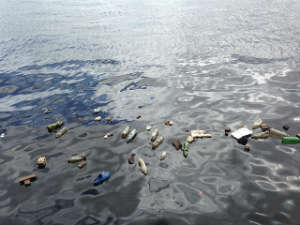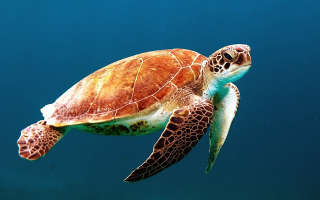Ocean Pollution Charities: The Organizations Trying To Reduce The Plastic In Our Oceans
As you may be aware, our planet’s oceans have a serious plastic problem.
Approximately 8 million tons of plastic waste are poured into our oceans each year, causing catastrophic effects on marine life. We only have one planet, so we must treat it with respect. While combating this issue may be difficult, many organizations are working to reduce plastic waste to clean up our oceans and protect our ecosystems.
Some of my favorite charities dedicated to this subject and what they’re doing to safeguard our planet from plastic pollution are listed further down in this article. However, I’ll start by highlighting why exactly plastic causes damage to the oceans and the planet as a whole.
The Detrimental Effects Of Plastic Waste On Our Oceans
As alluded to earlier, experts estimate that 8 million tons of plastic waste enter the oceans each year, where it breaks down into tiny particles that marine animals can inadvertently consume. Accordingly, the impact of plastic pollution on marine life is devastating. Moreover, plastic debris can entangle animals such as turtles, seals, and dolphins, causing injury and death.
Beyond the impact on individual animals, plastic waste in the ocean can also disrupt entire ecosystems. The chemicals used in plastics can leach into the water, affecting the growth and reproduction of marine organisms. Floating plastic debris can also act as rafts, transporting invasive species to new areas and disturbing the balance of local ecosystems.
Simply speaking, the scale of the problem is immense. In the Pacific Ocean, for example, there is a floating mass of plastic debris known as the Great Pacific Garbage Patch. This patch of trash, estimated to be twice the size of Texas, is believed to contain 1.8 trillion pieces of plastic. The problem is not confined to one part of the world, however, and plastic pollution is a global issue that requires urgent action.
Plastic Oceans Tackles Contamination
Plastic Oceans is a non-profit organization dedicated to educating the public about the risks of plastic pollution. They feel that changing people’s attitudes around plastic is the only way to eliminate the problem completely.
Some of the projects used to accomplish this goal include:
A Plastic Ocean Film
This charity produced a film called A Plastic Ocean, which has had a tremendous impact on educating people from all over the globe on the dangers of plastic waste.
Accomplishments of this film include:
- Screened in over 70 countries and on 6 continents
- Over 1,200 screenings hosted by government agencies, non-profits, schools, universities, individuals, multilateral institutions, corporations, aquariums, and other organizations
- 14 film festival awards
- Has subtitles in 15 different languages
Education Program
There is a 22-minute version of A Plastic Ocean and a 43-page Educational Supplement, which is great for classroom use. This educational program has been used to teach students worldwide to change how they think about plastic waste.
Social Enterprise Program
This program’s mission is to encourage students to develop creative solutions to the fight against plastic pollution in our oceans. The charity believes that young entrepreneurs can develop new businesses which contribute to this battle. An official Social Enterprise Program is available for download on their website.
Sea Life Trust
The Sea Life Trust shares Plastic Seas’ objective of protecting the world’s oceans and preserving the rich marine life that calls them home. They also own and run a number of marine animal refugees around the world. They’re currently constructing the world’s first beluga whale sanctuary. In Cornwall, the UK, they also manage a seal rescue refuge. The charity works to reduce overfishing as well as plastic pollution. Their objective is to safeguard all species, but they also have a program dedicated to sea turtle conservation.
The Ocean Cleanup
The Ocean Cleanup’s mission is to use advanced technology to help eradicate the Great Pacific Garbage Patch. They estimate that their systems are capable of removing half of this patch within 5 years. According to their website, conventional methods like vessels and nets would take thousands of years and tens of billions of dollars. Not only are their systems more efficient, they’re also much cheaper.
The Role Of Young Entrepreneurs In Reducing Plastic Pollution
Entrepreneurs, particularly young entrepreneurs, have an essential role in reducing plastic pollution in our oceans. By developing innovative solutions and creating new businesses, they can help tackle plastic waste and protect our marine ecosystems.
One way in which they’re making a difference is by creating new products made from sustainable materials. For example, some companies now produce reusable food containers and cutlery made from bamboo or other biodegradable materials. Others are developing innovative packaging solutions that can be recycled or composted, reducing the amount of plastic waste that ends up in our oceans.
In addition, young innovators are also developing new technologies to help clean up existing plastic waste in our oceans. For instance, some companies are using drones and other remote sensing technologies to identify areas of the ocean where plastic waste is concentrated, making it easier to target cleanup efforts. Others are developing new methods for collecting and recycling plastic waste, such as using 3D printing to turn plastic waste into new products.
How Can Individuals Help?
While many organizations and governments are working towards solutions, every person can make a difference with their daily choices and actions. Here are some ways you can contribute to reducing plastic pollution:
- Reduce your use of single-use plastics: Single-use plastics, such as straws, utensils, and water bottles, significantly contribute to plastic pollution. You can substantially reduce your plastic waste by using reusable alternatives like metal straws, bamboo utensils, and refillable water bottles.
- Choose products with minimal packaging: Many products come wrapped in excessive packaging, contributing to plastic waste. Opt for products with minimal packaging, or purchase items in bulk to reduce the amount of plastic packaging you bring home.
- Properly dispose of your waste: When you do use plastic, make sure you dispose of it properly. Recycling is an excellent way to reduce plastic pollution, but ensure you recycle correctly. Not all plastics can be recycled, and contaminated materials can ruin entire batches. Check with your local recycling facility to ensure you’re recycling correctly.
- Participate in beach cleanups: Beach cleanups are a great way to get involved in the fight against plastic pollution. Many organizations host beach cleanups, or you can organize your own with friends and family. Removing plastic waste from beaches and waterways can prevent it from entering the ocean and harming marine life.
Facts About Plastic Pollution In The Ocean
Here are some facts and statistics which help illustrate just how serious the problem with plastic pollution in the ocean is:
- In our oceans, plastic is the most common element.
- Plastic is frequently mistaken for food by marine species.
- In the Pacific Ocean, there is a garbage island twice the size of Texas, where the amount of floating plastic bits outnumbers marine life six to one.
- Ocean contamination is primarily caused by plastic.
Consider how you might decrease or eliminate your daily consumption of single-use plastics. We can all work together to help remove this problem and protect our seas and marine life if we make modest lifestyle modifications.







